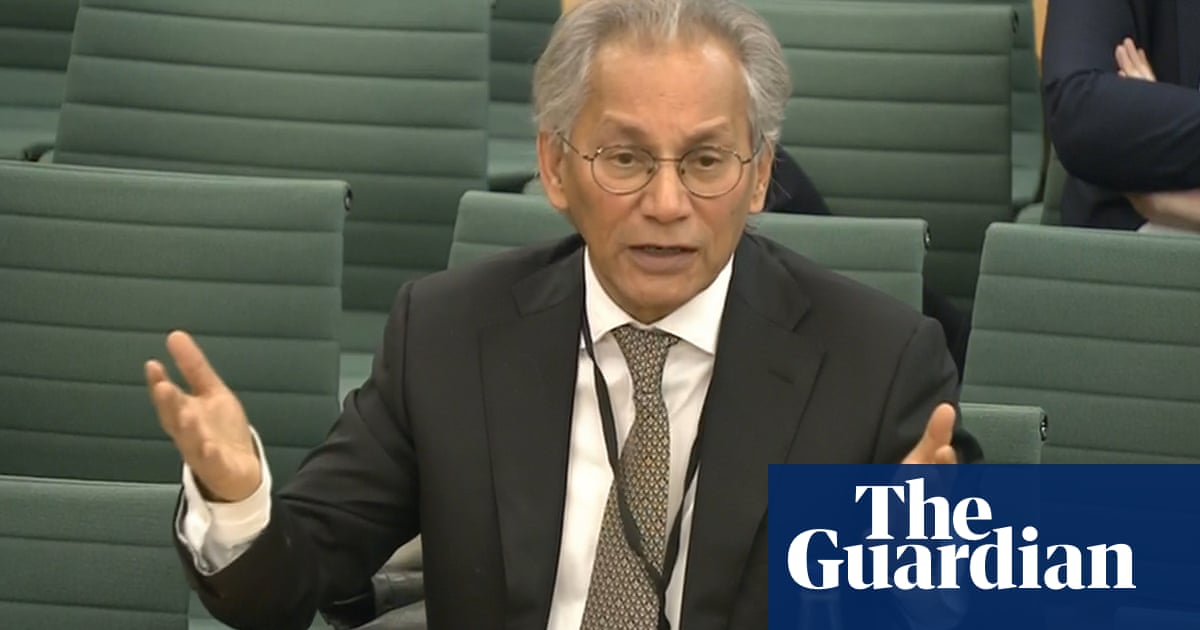
The chair of the commission that advised on the appointment of the Evening Standard owner Evgeny Lebedev to the House of Lords has been summoned to give evidence to MPs when parliament returns next week.
Paul Bew, an Irish historian, will appear before parliament’s public administration committee on Wednesday to answer what its chair described as “very serious questions” about Downing’s Street’s role in the appointment.
“We will be holding an evidence session on the role of the House of Lords appointments commission with Lord Bew,” the committee’s Conservative chair, William Wragg, said in a letter to the Labour deputy leader, Angela Rayner. He said members would raise some of the issues regarding Lebedev’s elevation in the session.
Controversy has surrounded Lebedev’s peerage after it emerged that the commission expressed concerns about his elevation to the Lords and asked Downing Street to reconsider in March 2020, after advice from Britain’s spy agencies. The appointment went through only after it was resubmitted amid pressure from Downing Street.
The spy agencies had told the commission that the issue related to his father, Alexander Lebedev, a one-time Moscow spy. During the late cold war period, Lebedev Sr worked undercover at the Soviet embassy in London. His real employer was KGB foreign intelligence, and he left in 1992 with the rank of colonel.
Rayner said: “There remain many unanswered questions about how the business partner and son of an ‘ex-KGB’ agent was granted a seat in our parliament. And if the PM overrode security advice to grant this peerage.”
Boris Johnson has known Lebedev, who with his father has owned the Standard since 2009, for many years. The prime minister has been a regular guest at parties hosted by Lebedev in London and at his converted castle in Perugia, Italy. After one such event in April 2018 he was seen at a nearby airport reportedly looking as if he had slept in his clothes.
Johnson resubmitted Lebedev’s nomination for a peerage in July 2020, to the surprise of some members of the commission. Sources have said that what followed was a “to and fro” between No 10 and the commission, reflecting “concern about his antecedents”.
Downing Street then sought further assurances from the security agencies. They said their fundamental assessment about the possible security risk was unchanged, but they also provided extra context, which sources said was enough to lead to a different outcome.
The peers reluctantly signed off on Lebedev’s appointment, with sources saying the committee felt “bounced”. In their confirmation letter, they are said to have called on Johnson to examine Russian influence in the Lords, something highlighted by parliament’s intelligence and security committee in its Russia report.
Security sources have previously told the Guardian that Lebedev’s “family links” mean he is still regarded as a potential concern. But they estimate the risk to be low, partly because peers do not see classified documents.
Downing Street and Lebedev have highlighted his charitable and business activities as reasons for the peerage. And in March, after Moscow’s invasion of Ukraine reignited the row about Lebedev’s appointment, the peer insisted he was “not some agent of Russia”.
Johnson has denied he overruled any security concerns about Lebedev’s appointment. “That is simply incorrect,” he said a little over a month ago.












